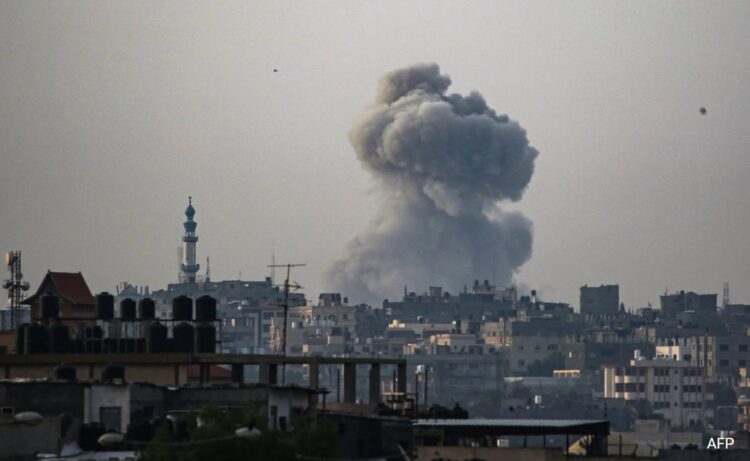An Israeli airstrike killed 31 people and wounded 20 in the Nuseirat refugee camp in central Gaza on Sunday, according to the Palestinian territory’s civil defense agency. This attack coincided with the visit of US National Security Advisor Jake Sullivan to Israel for discussions on the ongoing conflict.
In a separate development, Israeli troops have advanced into Rafah, a city in the southern Gaza Strip, which the Israeli army has identified as the last major Hamas stronghold. The US has reported that the fighting in Rafah has newly displaced approximately 800,000 civilians.
The Ezzedine Al-Qassam Brigades, the armed wing of Hamas, announced it had targeted Israeli forces at the Rafah crossing with mortar fire. This crossing, a crucial channel for humanitarian aid, has been closed due to the conflict. Meanwhile, Israel continues its military operations against Hamas forces in northern and central Gaza, areas previously under Israeli control. This has prompted warnings from the US about the potential for a prolonged counterinsurgency campaign.
Casualties and Damage
The recent Israeli airstrike on the Nuseirat refugee camp resulted in significant casualties. Gaza’s civil defense agency reported that 31 people were killed and 20 were injured in the overnight bombardment. Witness Yasser Abu Oula described the scene, stating that an entire residential complex was destroyed and that bodies were still being recovered from the rubble.
The Israeli military confirmed that it had “struck dozens of terror targets” over the past 24 hours and was investigating the reported casualties.
Diplomatic Efforts and Political Repercussions
US National Security Advisor Jake Sullivan met with Israeli Prime Minister Benjamin Netanyahu and his Israeli counterpart Tzachi Hanegbi in Jerusalem. Sullivan’s visit focused on discussing the conflict in Gaza and exploring post-war scenarios. The White House indicated that Sullivan briefed Netanyahu on the potential for a normalization deal between Israel and Saudi Arabia and urged the Israeli government to develop a political strategy for Gaza’s future.
Netanyahu has faced significant pressure both domestically and internationally to outline a post-war plan for Gaza. Centrist politician Benny Gantz threatened to leave the ruling coalition unless Netanyahu approves a post-war action plan by June 8. Gantz’s proposed plan includes measures to defeat Hamas, secure the return of hostages, and establish a civilian administration for Gaza supported by international stakeholders.
Broader Implications
The conflict, which began after Hamas’s unprecedented attack on Israel on October 7, has resulted in substantial casualties. According to Israeli figures, more than 1,170 people, mostly civilians, were killed in the initial attack. Hamas also took approximately 250 hostages, with 124 still held in Gaza, including 37 confirmed dead.
Israel’s retaliatory offensive has led to over 35,456 deaths in Gaza, primarily civilians, based on data from the Hamas-run health ministry.
Humanitarian Crisis
The ongoing siege of Gaza has exacerbated the humanitarian crisis, with severe shortages of clean water, food, medicines, and fuel. The United Nations has raised alarms about the dire conditions, emphasizing the urgent need for aid and warning of a looming famine.
Despite these challenges, aid has been entering Gaza intermittently. The United Arab Emirates reported a recent shipment of 252 tonnes of aid arriving via Cyprus, highlighting the international efforts to alleviate the humanitarian suffering in the region.

















Comments